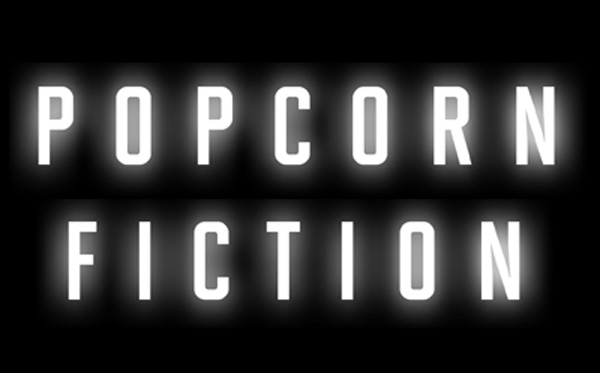“There’s a strange conception that writers don’t want other writers to make it,” Derek Haas said at one point during Saturday’s Popcorn Fiction panel at the Austin Film Festival, a statement that was easy to dismiss since he’s spent the last three years proving it to be untrue.
Ordinarily, the cigars are handed out after the celebrating starts and indeed after 140 short stories published, Popcorn Fiction deserved a round of celebration. However, as Haas recounted the history of the site which has become one of the Internet’s most hallowed havens for short stories, albeit often with an unholy bent towards hard-boiled noir, sci-fi, horror and humor, it was over some stogies with “The Hangover II” writer Craig Mazin that the idea for the short fiction site that publishes every Monday was first born when the two were musing about the rise of films being produced from short fiction from the 1950s and ‘60s.
A reminder of that afternoon could be seen in the left hand of fellow screenwriter Jeff Lowell (“When We Get Home”), who brandished a cigar throughout last weekend’s panel on “Popcorn Fiction,” but evidence of the site’s achievements were present in a bigger way on stage where he, Haas, Mazin, “Once Upon A Time” writer Christine Boylan (“Hoss”), and “Final Destination 5” writer Eric Heisserer, who just adapted his Popcorn Fiction short “Hours” into a feature he submitted to Sundance. One of the more free-wheeling panels of the festival, the quartet was in good spirits in discussing the site, teasing each other about the site’s nickname (Heisserer’s efforts to make “PopFic” happen were quickly thwarted by Mazin) and the nominal fee of $25 that one is paid for their work. (On the latter point, the author keeps the copyright and is allowed to do whatever they wish after a story is published.)
However, Popcorn Fiction has been a serious success since Haas got his younger brother to set up a site for him in 2009, a creation he didn’t hesitate to call “self-serving” at first.
In addition to offering him a forum to publish his own short fiction, Haas gathered together friends such as “Out of Sight” scribe Scott Frank (“The Flying Kresslers”) and “Mystic River”’s Brian Helgeland (“At Her Feet He Fell”) to craft prose running between 2000 to 8000 words for the site with the hope that he could subsequently compile a list of Hollywood executives that would become regular readers. The effort paid off as soon as Haas’ serial killer thriller “Shake” was optioned by Jerry Bruckheimer, opening the floodgates to studio employees clamoring to get on Popcorn Fiction’s mailing list and other deals to be made.
Yet by that point, Popcorn Fiction had transcended its initial purpose, becoming a legitimately great (not to mention free) read for a worldwide audience while allowing writers to step outside of the work they’re known for or accustomed to.
“It’s so important to write in other genres and other mediums because you end up sort of cross-pollinating stuff,” said Heisserer. “That allows you to bring fresh ideas or even just fresh delivery mechanisms to your screenwriting.”
Mazin added about his own contribution to the site “Lightning in a Bottle,” “It’s opened some eyes. I have a pretty good relationship with Michael Shamberg and Stacey Sher and I’ve been working on something with them that’s not a comedy. I don’t think that would’ve happened had I not written that short story.”
Although Haas doesn’t keep track of what happens after a story is published on Popcorn Fiction – among the notable afterlifes include an adaptation of Beth Schacter’s “The Break Up 5000” for producer Lynda Obst, Todd Stein’s sci-fi short “Tipping Point” being sold to Relativity, and Leslie Bohem’s two-part “Honeymoon” finding a home at Universal – he has had its good karma come back to him. During the panel, he told the story of Michael Gilvary, whose short story “Unconditional” was read by “Breakout Kings” showrunner Matt Olmstead, who then hired Gilvary to work on the show. Olmstead later was brought on to run Haas and writing partner Michael Brandt’s currently running NBC series “Chicago Fire” and Gilvary came along with him.
Still, the site has experienced a few hitches. Thanks to his work on the adaptation of “3:10 to Yuma,” Haas and Brandt spent some time with Elmore Leonard, who was intrigued enough by Popcorn Fiction to pass along 13 unpublished short stories for Haas to choose from. While they still reside on Haas’ computer, they’ll never appear on the site after Leonard’s agent caught wind of it. Haas has also increased efforts to open the doors to writers outside of Hollywood and not necessarily in the screen trade, partnering with Mulholland Books to keep an ongoing open submission link on the site. Since doing so Haas estimated around 25 writers outside the entertainment industry have had their stories alongside the likes of Lawrence Block (“See The Woman”), John August (“Snake People”), Rian Johnson (“The Man in the Herringbone Hat”) and “Simpsons” scribe Larry Doyle, who according to Haas has taken ownership of Valentine’s Day with a slice of romantic comedy every year.
That Popcorn Fiction is established enough now to have traditions is a testament to a really clever idea, one that Haas said he isn’t planning to alter in any way, with no plans expand the site beyond what it is today. However, he did add that the experience continues to bring new inspiration all the time.
“If I can convey one message today, it’s read all of these guys’ stories on there,” Haas said, pointing to his fellow panelists. “You’ll see they all tackle different things than what you would’ve thought that they did and I do think flexing those creative muscles in a different way is what keeps us all enthusiastic about what we’re doing.”





My Mondays wouldn’t be the same without Popcorn Fiction. The writing is, without fail, phenomenal. A word of caution, though: it’s addictive, and as far as I can tell, there is no cure. (You’ve been warned. Now go. Read!)